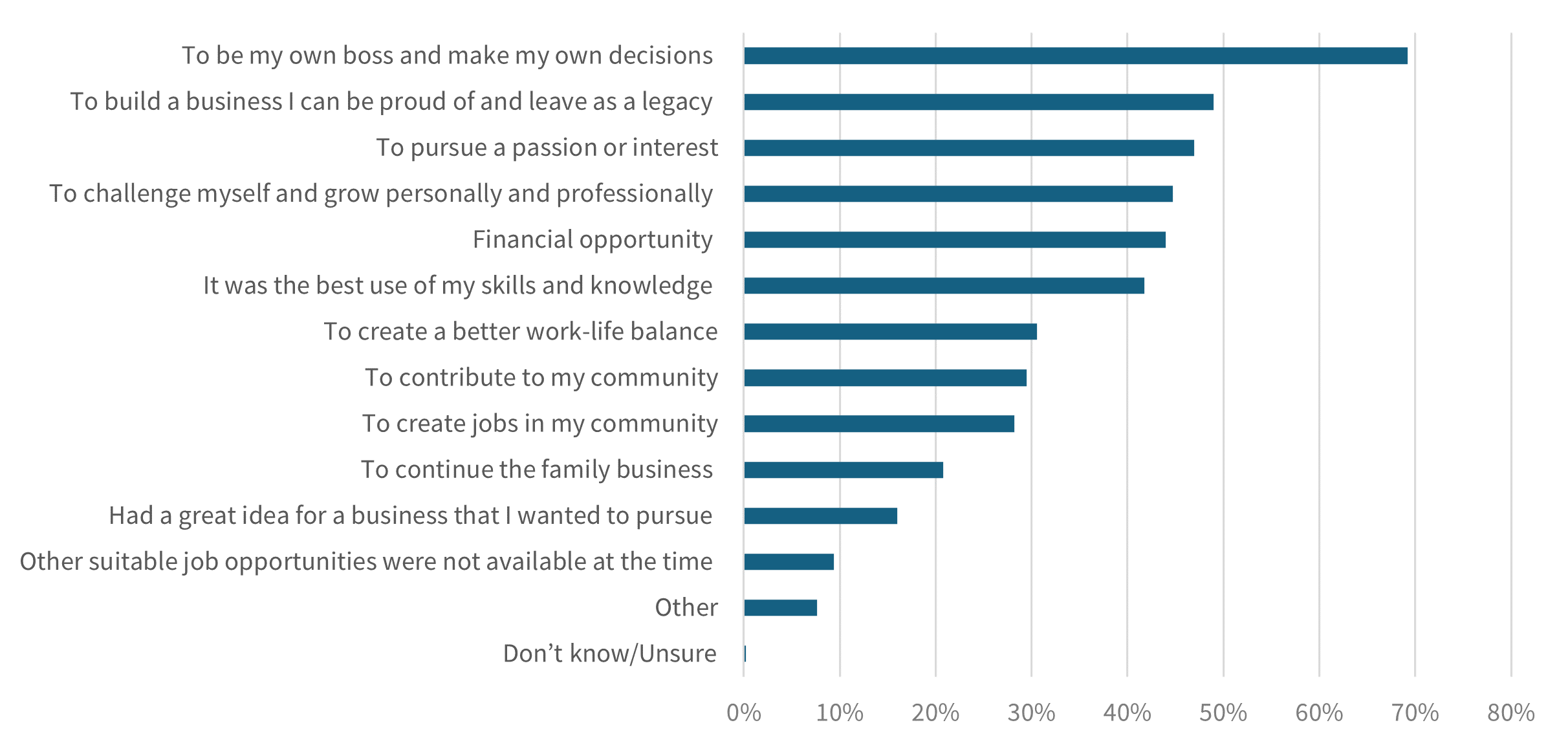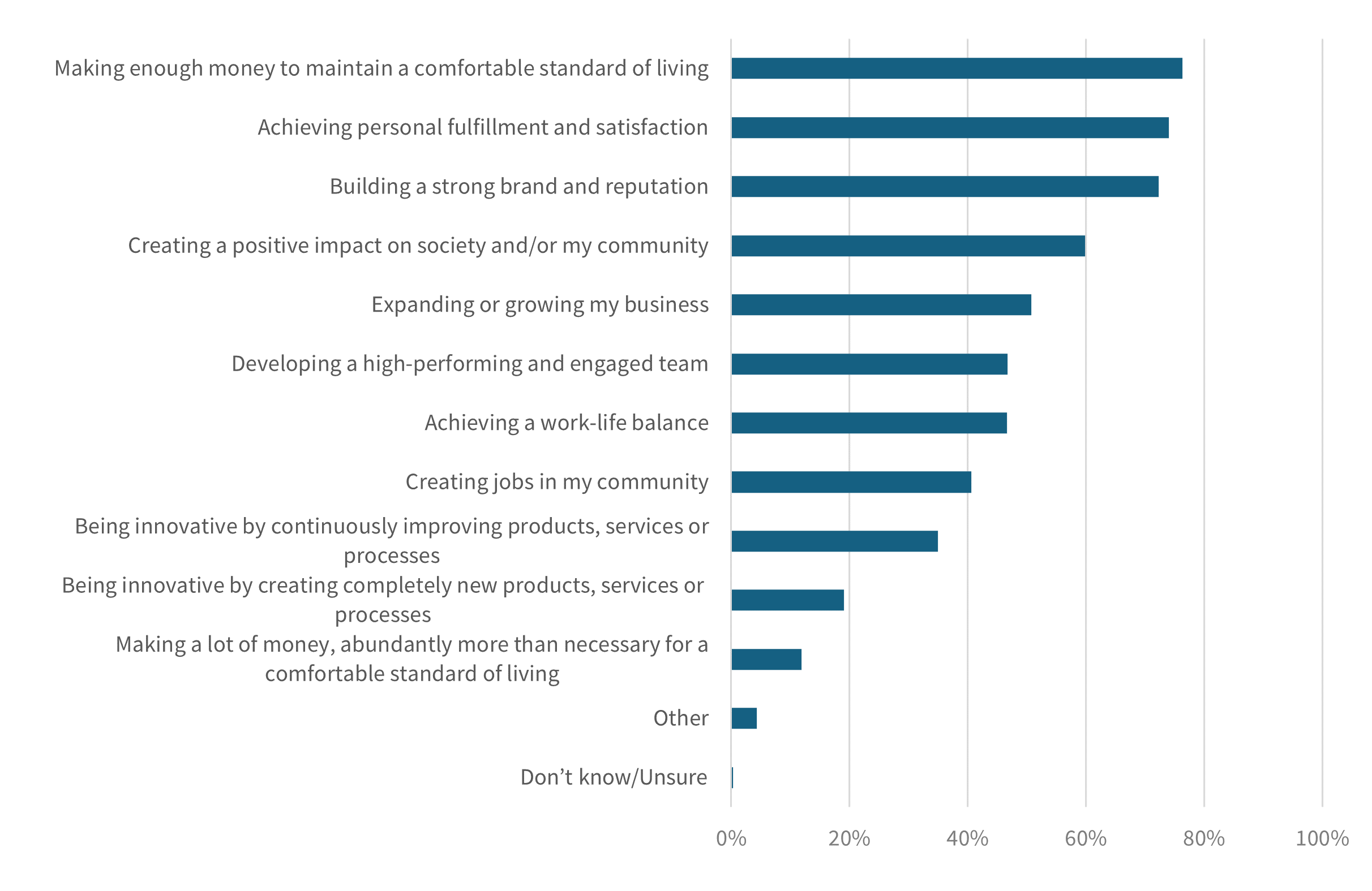
As I am writing this first post for our new CFIB blog, a lot of Canadian business owners find themselves at a crossroads. The January 18 hard CEBA deadline set by the federal government for loan repayment has recently passed, and thousands of businesses lost $20,000 in forgivable loans, adding debt in an already challenging business environment.
This lack of flexibility by the government could not have come at a worse time. After years of historic and continuous turmoil, entrepreneurs continue to deal with one of the last in a long series of major challenges: outsized inflation. It translates into very high costs of doing business and higher interest rates which simultaneously constrain sales and add pressure on business financing. To top it off, the world also seems increasingly less business friendly.
It is definitely not easy being an entrepreneur these days – some would say it has not been for years. Echoing that, the CFIB Monthly Business Barometer® has registered a clear downward trend in business owner optimism over both the short and long term, a trend which actually started decades ago (we will come back to that in a future post).
The burden of taxes, red tape and the never-ending flow of new requirements seem like the new definition of the ‘privilege’ to run a business and compete. It really makes it look like we collectively – perhaps our governments first and foremost – take certain things for granted and have a somewhat narrow view when it comes to entrepreneurship. Let’s call it the ‘balance sheet and growth’ view. Here are some familiar ways to encapsulate it:
- The job definition of an entrepreneur is to monetize and scale as much as possible their innovative ideas about products or services. New businesses must strive to become the multinationals of tomorrow.
- A firm is a vehicle for optimizing. It allocates labour, capital and other resources in the most economically rational way possible, in order to maximize profits.
- Business is about survival of the fittest. Firms constantly fail, but new ones will take their place, and it is what keeps our economy alive, competitive, and modern. Churn is healthy and, for most firms, longevity is not necessarily a good thing, especially if they don’t grow larger.
- It is not that bad if we keep making life hard for entrepreneurs, after all their job definition is to solve problems and what does not kill you makes you stronger.
These narrow descriptions of entrepreneurship seem like a very large part of what the public bases its expectations of entrepreneurs on, and in parallel what fuels policymakers’ vision when they aim to support economic development and small business. We have certainly heard this quite a bit recently in the debate around a CEBA deadline extension, where we can sum up one popular view as:
currently struggling firms = poorly managed firms lacking vision or drive = a chance for a hungrier and fitter replacement
But did struggling businesses really end up where they are in early 2024 due to poor entrepreneurship? Is the entrepreneurs’ pull force essentially one of optimizers, of calculators only dedicated (or required) to maximizing profit and ultimately elevating their business into an international flag-bearer for Canada, or could there be other drivers? Most importantly, is making a lot of money or turning their project into a big business necessarily what defines their success?
While CFIB has provided answers to the first question in the current debate about CEBA, its data also suggests that a much more nuanced and complex story addresses the last two. The following data from a recent survey we conducted with hundreds of entrepreneurs reveals that their core motivations are varied and much more than about just money and growth:
Why did you become a business owner?

Source: The CFIB Achieving Success in Entrepreneurship survey was conducted online June 22 – July 26, 2023 and 1,569 small business owners from Canada answered the question above. For comparison purposes, a probability sample with the same number of respondents would have a margin of error of +/- 2.5%, 19 times out of 20.
Note: Respondents could select more than one answer choice.
As can been seen in the figure above, first and foremost, the decision to become an entrepreneur stems from a desire to be one’s own boss and make one’s own decisions (69% of respondents). The importance of this particular feature of entrepreneurship – namely to embody independence and freedom, some of the cardinal values in a liberal democracy – is sometimes forgotten.
Many entrepreneurs were also initially driven by a desire for self-development and self-care (‘pursue a passion/interest’ → 47%, ‘challenge myself and grow’, → 45%, ‘best use of my skills’→ 42%, ‘better work-life balance’ → 31%). This highlights another great function of entrepreneurship, which is to put people where they really want/need to be so they can best contribute to society. Here, capitalism in the form of business ventures harnesses people’s self-drive in an important direction: not for greed as detractors like to caricature it, but for the greater good.
Speaking of society and of something bigger than the individual perspective, a lot of survey respondents also mention having been motivated by adding to the connective tissue around them (‘contribute to my community’ → 30%, ‘create jobs in my community’ → 28%, ‘continue the family business’ → 21%). When we drilled down on that idea in a similar 2018 survey by asking why contributing to the social well-being of their community or the world was a motivating factor, we received hundreds of comments from business owners explaining that they were either a unique provider of local services to their community, a popular meeting point, that they were supporting locals through charitable donations or sponsorships, provided first opportunities to youth workers or were trying to demonstrate/share through their business project values they felt were important.
In our recent survey, entrepreneurs were also invited to explain how they would define and measure success:
How do you personally define success for yourself and your business?
Please select the answers you consider the most important.

Source: The CFIB Achieving Success in Entrepreneurship survey was conducted online June 22 – July 26, 2023 and 1,568 small business owners from Canada answered the question above. For comparison purposes, a probability sample with the same number of respondents would have a margin of error of +/- 2.5%, 19 times out of 20.
Note: Respondents could select more than one answer choice.
While making enough money to be comfortable was a top choice as a definition (76% selected it), honestly it would also be fair to expect it to be a popular life goal should all Canadians be polled.
Beyond this, some of the other top choices actually echo our other 2023 and 2018 survey results mentioned previously, such as self-achievement (74%), building a strong brand and reputation (72%), or creating a positive impact on society/the community (60%). Making a lot of money (12%) or expanding/growing the business (51%), which meet the totally acceptable but more exclusive ‘balance sheet and growth’ view of entrepreneurship described above, received a lower share of responses, as did innovating by creating (19%) or improving (35%), another common way of stereotyping entrepreneurs.
So much for the cliché entrepreneur who is essentially in it to exploit a new big idea, build the next multinational and make a lot of hay. Canada rather seems to be blessed with an incredible group of people who have chosen entrepreneurship for diverse reasons and are driven by different goals. Some care about business growth, some care about self-growth and some care about the growth of their community (or all of that at the same time). There is no right or wrong definition here and we actually need all of the entrepreneurship we can get from all of these people to build a strong country. So how about we build an agenda in support of all these types of growth? This could be a powerful approach in 2024 and beyond as we as a society approach how and why we need to show our support of entrepreneurs and independent businesses.
My team and I are excited to start this journey of blogging about business insights and what CFIB members have to say about their own realities, challenges and aspirations. Stay tuned for more.

Simon Gaudreault, "Entrepreneurship is so much more than just a balance sheet", CFIB, InsightBiz blog, February 27, 2024, https://www.cfib-fcei.ca/en/research-economic-analysis/insightbiz-entrepreneurship-is-so-much-more-than-just-a-balance-sheet.
The views expressed in this post are those of the author(s) and do not necessarily reflect the position of the Canadian Federation of Independent Business. Any errors or omissions are the responsibility of the author(s).


